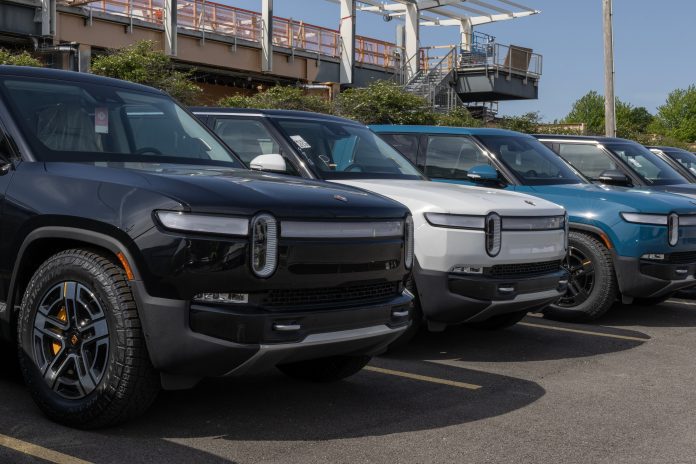Volkswagen Group plans to invest up to $5 billion in electric vehicle startup Rivian, beginning with an initial $1 billion investment, followed by an additional $4 billion expected by 2026. This strategic partnership aims to bolster Rivian’s production and technological capabilities, enhancing the EV landscape for both companies.
The initial $1 billion from Volkswagen will come in the form of a convertible note, which could be converted to Rivian shares on or after December 1, according to a joint release on June 25. The investment will aid Rivian in becoming cash flow-positive, particularly as it ramps up production of its smaller R2 SUVs in Normal, Illinois, starting in 2026, and a midsize EV platform in Georgia, where construction was paused earlier this year.
Rivian CEO RJ Scaringe emphasized the importance of this deal, noting that the capital infusion is expected to sustain the company through these critical production phases. “We believe the opportunity ahead is significant. This deal is possible because we’re focused on vertically integrating our network architecture, topology, V-CPUs, and associated software platforms,” he said during an investor call.
In the second half of the decade, Volkswagen plans to utilize Rivian’s electrical architecture and software stack for its vehicles. The joint venture will not include battery technologies, vehicle propulsion platforms, high-voltage systems, autonomy, or electrical hardware. The venture’s leadership will be shared, with Rivian appointing technical leaders and Volkswagen appointing a chief operating officer. As noted by Rivian CFO Claire McDonough, the joint venture is expected to close in the fourth quarter of this year.
Moreover, the EV startup has been on a cost-cutting mission, trimming staff, retooling its Illinois plant to increase efficiencies, and pausing the construction of a new factory in Georgia. These measures are expected to save more than $2.25 billion in capital spending, including starting production of the upcoming R2 vehicles in Illinois instead of Georgia.
The Volkswagen-Rivian partnership highlights a strategic shift as automakers navigate slower-than-expected EV adoption. Pietro Zollino, head of VW corporate communications, clarified that the deal does not alter Volkswagen’s plans to build a $2 billion EV plant for its Scout Motors trucks and SUVs in South Carolina. “Our commitment towards Scout has not changed at all,” he said.
This Volkswagen investment follows a similar pattern to Ford’s previous stake in Rivian, which Ford exited in 2023 after rescinding a plan to co-develop EVs with the company.



